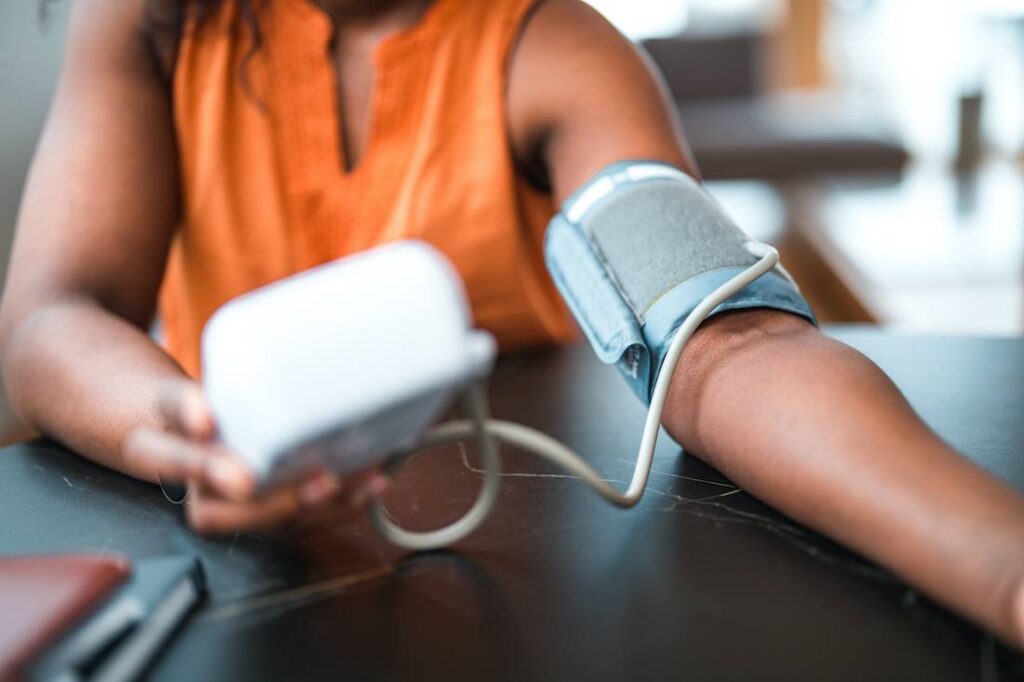High blood pressure, or hypertension, is a common problem that affects millions of people, often without them even realizing it. Many of us may not think much about it until we experience symptoms like headaches, dizziness, or shortness of breath. But what most people don’t know is that “high blood pressure is a silent threat to your heart” and overall health.
So, where do you turn when you need help managing your blood pressure? A cardiologist could be the answer.
In this blog, we’ll dive into how a cardiologist can help treat blood pressure, when to see one, and how to find the right cardiologist for your needs. If you’ve been struggling with high blood pressure or simply want to learn more, keep reading!
Role of a Cardiologist in Treating Blood Pressure
 A cardiologist is a heart expert who plays a key role in diagnosing and treating high blood pressure (hypertension). If you’re dealing with blood pressure issues, here’s how a cardiologist can help:
A cardiologist is a heart expert who plays a key role in diagnosing and treating high blood pressure (hypertension). If you’re dealing with blood pressure issues, here’s how a cardiologist can help:
- They’ll measure your blood pressure and assess your overall heart health to figure out what’s causing your high blood pressure.
- Identifying the cause, whether your high blood pressure is primary (no clear cause) or secondary (due to other conditions like kidney disease), so they can treat it properly.
- Based on the cause, they create a personalized treatment plan with the right medications, lifestyle changes, and follow-up care to manage your blood pressure effectively.
-
They’ll also keep an eye on other factors like cholesterol, diabetes, or smoking that might be contributing to your heart’s health, adjusting treatments as necessary.
In short, a cardiologist doesn’t just treat high blood pressure—they help you understand it and make a plan to manage it for long-term heart health. If you’re facing blood pressure issues, seeing a cardiologist could be your next smart step.
How Does a Cardiologist Diagnose High Blood Pressure?
 When you see a cardiologist for high blood pressure, they’ll use a few key tests and procedures to get to the root of the problem. Here’s how they do it:
When you see a cardiologist for high blood pressure, they’ll use a few key tests and procedures to get to the root of the problem. Here’s how they do it:
- Measuring Blood Pressure
The first step is to take multiple blood pressure readings during your visit. They’ll measure your systolic (top number) and diastolic (bottom number) pressure to determine if your blood pressure is consistently high.
-
24-Hour Blood Pressure Monitoring
In some cases, a cardiologist might recommend ambulatory blood pressure monitoring, where you wear a cuff that checks your blood pressure throughout the day and night. This helps get an accurate picture of your blood pressure over time.
-
Checking for Underlying Heart Conditions
Cardiologists often run tests to check if heart conditions (like heart disease or arrhythmias) are causing your high blood pressure. Tests may include an ECG (electrocardiogram) or an echocardiogram to look at your heart’s electrical activity and structure.
-
Evaluating Risk Factors
They’ll ask about your medical history, lifestyle, and family history of heart disease. They’ll look for risk factors such as diabetes, high cholesterol, smoking, and obesity, which all contribute to high blood pressure.
-
Lab Tests
Cardiologists may recommend blood tests to check for conditions like kidney disease or thyroid problems, which can cause secondary hypertension (high blood pressure due to other health issues).
By using these tests and evaluating your overall heart health, a cardiologist can diagnose high blood pressure accurately and determine the best treatment plan. If you’re concerned about your blood pressure, a cardiologist can provide the expertise needed to manage it effectively.
Treatment Options a Cardiologist Provides

If you’re diagnosed with high blood pressure, a cardiologist will provide a range of treatment options to help manage and lower your blood pressure. Here’s what they might recommend:
1. Medications: These medications are used to maintain a healthy blood pressure level and prevent complications like heart disease or stroke.
- ACE inhibitors: Relax blood vessels and lower blood pressure.
- Beta-blockers: Slow the heart rate and reduce the heart’s workload.
- Diuretics: Help the body remove excess sodium and fluid, which lowers blood pressure.
- Calcium channel blockers: Relax and widen blood vessels, improving blood flow.
2. Lifestyle Modifications: Cardiologists will encourage lifestyle changes that support heart health, including:
- Healthy diet: Low in salt, rich in fruits, vegetables, and whole grains.
- Regular exercise: Helps reduce blood pressure and strengthens the heart.
- Weight management: Maintaining a healthy weight can lower blood pressure.
- Reducing alcohol and smoking: Limiting alcohol intake and quitting smoking helps improve overall heart health.
3. Stress Management Techniques
-
Since stress can contribute to high blood pressure, cardiologists might recommend stress-reduction methods, like meditation, deep breathing, or yoga.
4. Monitoring and Regular Check-ups
5. Cardiac Rehabilitation
-
For patients with heart-related complications due to high blood pressure, cardiologists might recommend cardiac rehab programs. These programs include exercise training, education, and support to help improve heart health.
With a mix of medications, lifestyle changes, and regular monitoring, a cardiologist can help you keep your blood pressure under control and reduce your risk of further complications. Always follow your cardiologist’s advice to maintain a healthy heart and well-managed blood pressure.
Where to Find a Suitable Cardiologist To Manage Blood Pressure
Finding the right cardiologist for your blood pressure management is key to getting the proper care and treatment. And if you are someone dealing with heart-related issues and looking for a specialist to help you deal with them, then Mantra Doc is here to help you find the perfect match!
At MantraDoc, we make it easy to find a suitable cardiologist. Our directory allows you to search for heart specialists based on your preferences—whether it’s location, expertise, or availability.
Click the button below to get matched with a suitable online cardiologist who can help manage your BP and guide you to better heart health.
Consult Online Cardiologist
Conclusion
Managing blood pressure is crucial for maintaining heart health, and finding the right cardiologist is the first step in the process. Whether you’re looking for medication, lifestyle guidance, or ongoing monitoring, a qualified cardiologist can help you control your blood pressure effectively.
Don’t wait to take control of your health. Click the button or visit our website to get matched with a suitable online cardiologist who can guide you every step of the way.
 A cardiologist is a heart expert who plays a key role in diagnosing and treating high blood pressure (hypertension). If you’re dealing with blood pressure issues, here’s how a cardiologist can help:
A cardiologist is a heart expert who plays a key role in diagnosing and treating high blood pressure (hypertension). If you’re dealing with blood pressure issues, here’s how a cardiologist can help:

 When you see a cardiologist for high blood pressure, they’ll use a few key tests and procedures to get to the root of the problem. Here’s how they do it:
When you see a cardiologist for high blood pressure, they’ll use a few key tests and procedures to get to the root of the problem. Here’s how they do it: